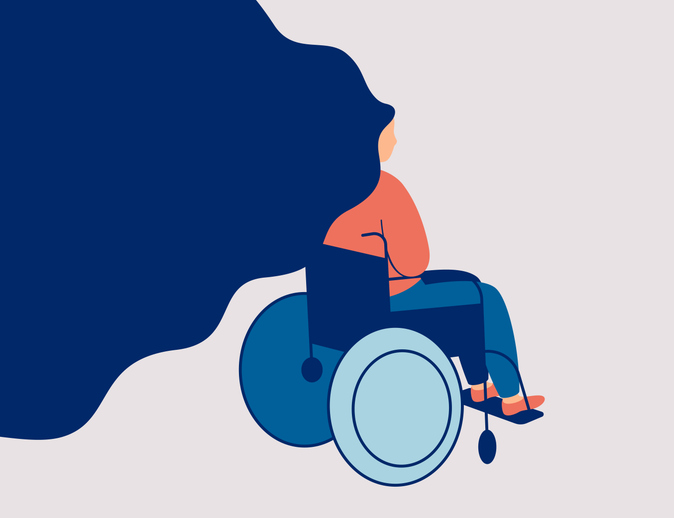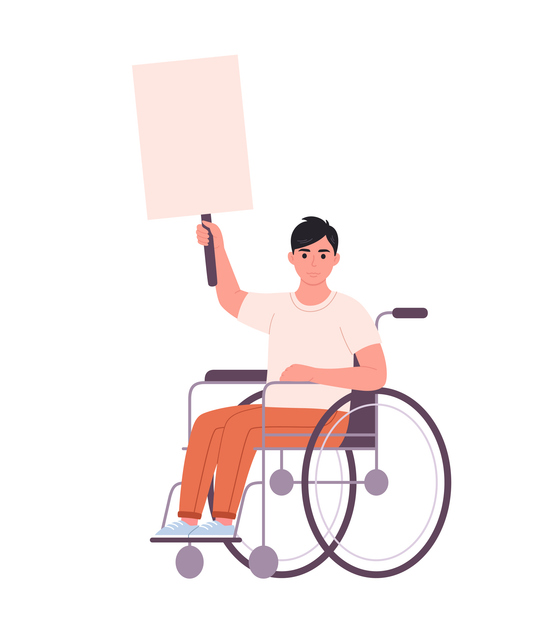
Is Medical Education ‘Accessible’ for Persons with Disabilities?
In a recent judicial development, the Supreme Court of India allowed the admission of two candidates to MBBS Course who were previously held to be ineligible for admission due to their respective disabilities. This decision of the Court remedied discrimination based on disability and carried forward the mandate of the Rights of Persons with Disabilities Act, 2016 (‘RPWDA’) which strives to promote accessibility and inclusivity for persons with disability. RPWDA attempts to nurture a more inclusive educational environment, particularly by providing for affirmative action through reservation of seats in higher education for persons with benchmark disabilities under Section 32.
The Graduate Medical Education Regulations, (Amendment), 2019 (‘2019 Amendment’) delineates three distinct categories for candidates with disabilities seeking admission to MBBS: i) those who are eligible for reservation; ii) those who are ineligible for reservation; and iii) those who are precluded from seeking admission to MBBS based on the extent of their disability. The 2019 Amendment disqualifies persons whose disability is assessed to exceed 80 percent from pursuing medicine.
This system of percentage-based assessment of disability has been the subject-matter of multiple litigations before various courts in the country, including the Supreme Court of India, with Courts ordering re-examination by Medical Boards on numerous instances, as in the recent case of Vibhushita Sharma v Union of India (W.P.(C) No. 793/2022.). Recently, in the case of Bambhaniya Sagar Vasharambhai v Union of India (W.P. (C) No. 856/2023.), two candidates sought reinstatement of their MBBS seats after being disqualified due to their disabilities. The Supreme Court in this case, while ordering a reevaluation, expressed its dissatisfaction with the lack of reasoning in the reports by the Medical Boards and underscored the significance of explicit, clear rationale in the disqualification decisions made by these Medical Boards during the review process. In extenuating circumstances, Courts often issue interim orders to reserve seats, pending litigation, to facilitate admission, in the event of the litigant obtaining a favourable order. However, this practice of seat reservation pending court decisions disrupts educational continuity, posing a challenge not only for academic institutions but also for the candidates who are often forced to join mid-semester leading them to miss out on the curriculum. The ever-increasing numbers of such cases has invariably raised questions about the processes being followed by Medical Boards which in most cases are arbitrary owing to absence of clear, explicit procedural guidelines.
Another troubling trend that has emerged is petitioning for invocation of Article 142 to reinstate seats and calling for reevaluations due to the absence of established provisions. This highlights the inadequacy of legal remedies for those challenging the medical board’s decisions.There is an urgent need for accountability mechanisms within these medical boards and a well-defined competency evaluation framework.
While the Rights of Persons with Disabilities Act 2016 aims to foster inclusivity, it secures reservation only for persons with benchmark disabilities, i.e., a person with not less than forty per cent of a specified disability, as defined under Section 2(r) of the RPWDA. Moreover, the 2019 Amendment which bars admission of students on account of their disability is concerning, as the classification of students with disabilities based on ‘disability range’ not only impedes access of persons with disabilities to medical education, but is also inherently discriminatory as it considers persons with disabilities assessed at ‘more than 80%’ ineligible while denying reservation to their counterparts with ‘less than 40% of a specified disability’.
To ensure fairness and inclusivity in medical education, three key aspects must be addressed. First, it is crucial to establish explicit guidelines and robust accountability mechanisms within Medical Boards to ensure transparency and consistency in assessing candidates’ fitness. Second, the inadequacy of legal remedies for disqualification appeals must be addressed and it is essential to expedite the resolution of such cases, minimising disruptions to the education of candidates with disabilities. Lastly, there is a pressing need to reevaluate the policy disqualifying students when their disability exceeds 80 percent, with the goal of establishing a fair non-arbitrary competency assessment for prospective medical students with disabilities. These steps are crucial for India to meet the Sustainable Development Goal to ‘leave no one behind’ and to fulfil its commitment under the UN Convention on Rights of Persons with Disabilities, to create an equitable, just and accessible environment, including the right of persons with disabilities to pursue medical education.
Saurish Mukherjee is a 2nd year law student at The West Bengal National University of Juridical Sciences, Kolkata. He was an intern with the Disability (Inclusion and Access) team at Vidhi, New Delhi.


